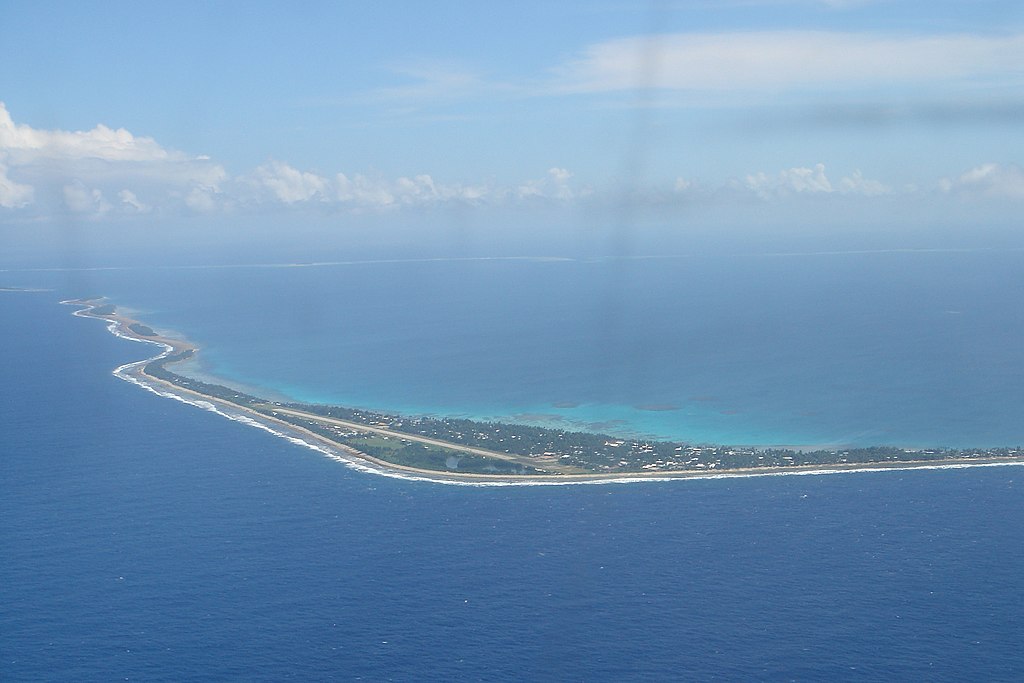Tuvalu is a tiny island nation in the Pacific Ocean. It’s also one of the countries most threatened by climate change. Now Australia and Tuvalu have made a deal that gives the people of Tuvalu a place to go if their islands become unsafe because of rising seas.
For Tuvalu – and other low-lying island nations – tackling the climate crisis is hugely important. On average, Tuvalu is only 6.6 feet (2 meters) above sea level. At its highest point, Tuvalu is just 15 feet (4.5 meters) above sea level. The country is expected to be one of the first to be made unlivable by rising sea levels.
Tuvalu used to be made up of 11 islands. Now there are just nine. Scientists believe that the entire nation could be under water within 80 years.

(Source: Gabriella Jacobi [CC BY-SA 3.0], via Wikimedia Commons.)
Over 11,000 people live in Tuvalu. Rising seas are already making it harder to get fresh water to drink. The saltwater is also making low-lying land useless for farming. And it’s likely that the islands will face more flooding and stronger storms in the future.
Now, people from Tuvalu have been offered a chance to live and work in Australia. On November 9, the prime ministers of the two countries signed an agreement making that offer official. Kausea Natano, the prime minister of Tuvalu, described the deal as a “beacon of hope” for his country.
Under the deal, people from Tuvalu will be allowed to “live, study, and work in Australia”. They will be able to use Australia’s schools and health care system.

(Source: FabGUTIE [CC BY-SA 4.0], via Wikimedia Commons.)
Since the islands of Tuvalu are important to its people, there is no plan for everyone from Tuvalu to leave immediately. For now, just 280 people from Tuvalu will be allowed to move to Australia each year. That will keep the island nation from losing too many important people who can help improve the situation.
Australia is also offering money – US $10 million (AUD $16 million) – to help protect Tuvalu’s islands and to try to rebuild some of the land that has already been lost.
Australia has also promised its support if Tuvalu faces any serious problems, including natural disasters, large-scale health problems (like the Covid-19 pandemic), or military challenges from other countries.

(Source: Australia DFAT [CC BY 4.0], via Wikimedia Commons.)
The agreement was requested by Tuvalu. But in exchange for the help, Tuvalu’s government will check with Australia before making any important defense agreements with other countries.
Australia has said that it is willing to make similar deals with other Pacific island nations. Making deals with these smaller countries would help Australia keep China out of the area.
In recent years, China has been working hard to increase its power in the Pacific. Just last year, Australia was very upset when the nearby Solomon Islands, which Australia had long supported, agreed to allow China to build a military base on its land.
The deal between Australia and Tuvalu must still be approved by the governments of both countries.
